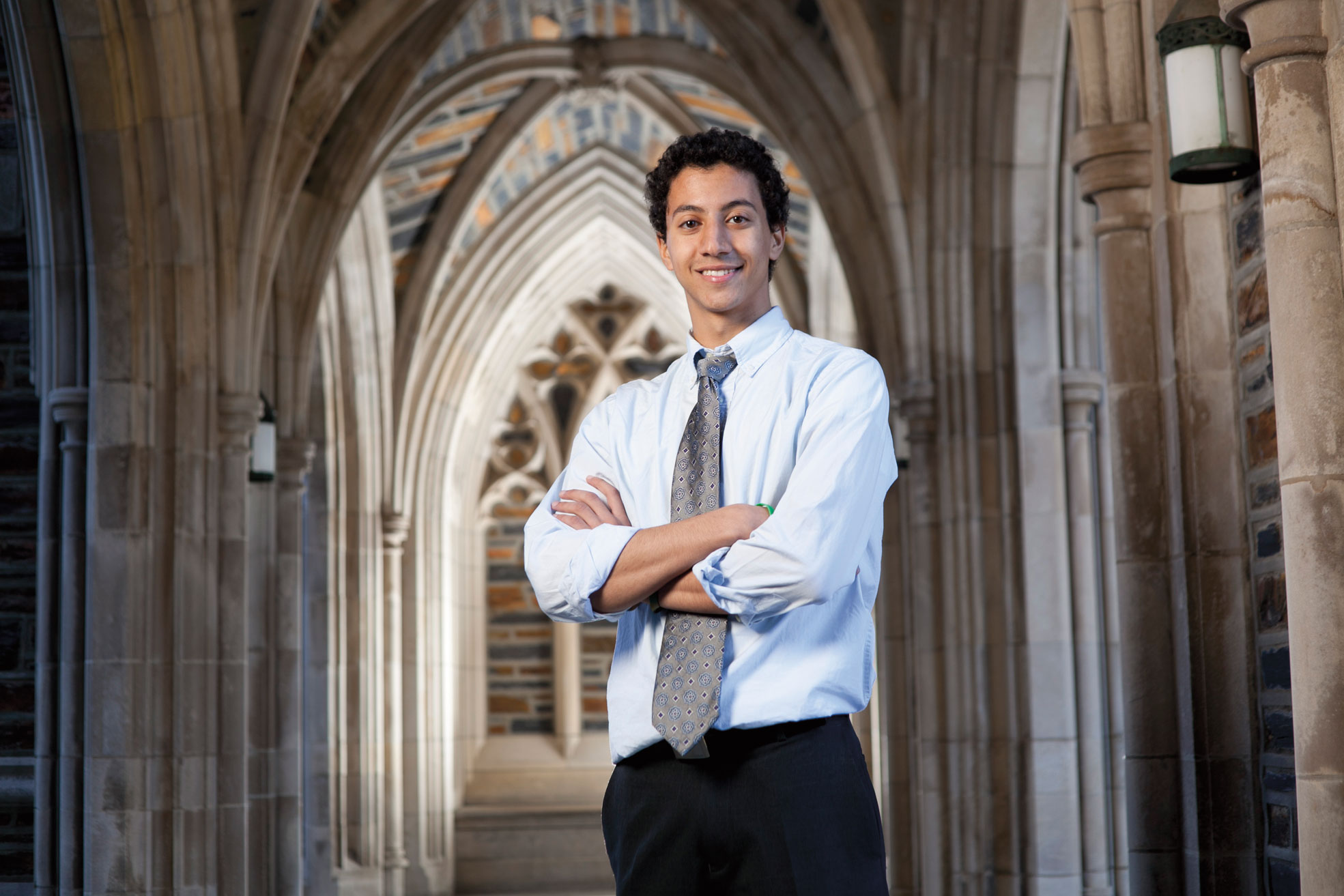For Andrew Leon Hanna '14, solidarity isn’t just another buzzword; it’s a generational imperative. In a closing ceremony at the 7th UNESCO Youth Forum in Paris, Hanna and 210 other conference delegates became temporary flag bearers for a country not their own. For Hanna, who chose to carry the colors of Sierra Leone, the act was a profound symbol of “how much of the same boat we’re in,” he recalls. “Beyond any difference, we’re all people seeking the same things.”
Over the three-day conference this past October, Hanna and some of the world’s brightest youth deliberated on what exactly those things were, detailing their findings in a document that they presented to the general body of the United Nations Educational, Scientific and Cultural Organization. Some of the recommendations included offering free, universal, and mandatory education to the secondary level; raising environmental awareness among youth; and creating an official International Convention on Youth Rights. Out of these and additional discussions on topics such as social justice and political activism, a consistent theme emerged: Youth can be agents of necessary change.
“The Arab Spring, the Occupy movements, these are all reinforcing the idea that young people are paying attention and coming together to try to change the way things work, from Tahrir Square to Wall Street,” says Hanna, the sophomore class president and a Robertson Scholar. “And it’s not naïve to think that [at the forum] we were forging connections among future leaders of that change.”
Hanna has long been advancing the idea of “youth empowerment,” that is, young people connecting and collaborating on a local level. Last fall, he was responsible for organizing the inaugural Sophomore Convocation at Duke. The event was an exercise in community building, intended to reverse some of the isolation that begins to take hold following freshman year. And while in high school, Hanna initiated a mentoring program called IGNITE, which was designed to help ease the first-year transition. The program paired freshmen with senior “big brothers and sisters” to ensure that “no student fell through the cracks,” Hanna says. Building on IGNITE’s success, Hanna received a $1,000 grant from the N.C. State Institute for Emerging Issues to launch a similar program for Hillside High School in Durham next fall.
A first-generation Egyptian American, Hanna says that the UNESCO Youth Forum reinforced the importance of having an open mind and keeping a global perspective. One delegate in particular, a young man from Zambia, reminded him of this over lunch one day. The delegate’s frustration with Africa being regarded as merely a charity case made a lasting impression on Hanna.
“This is our generation saying, ‘We’re inheriting this world—and we must have a say in what it looks like.’ ”

Share your comments
Have an account?
Sign in to commentNo Account?
Email the editor